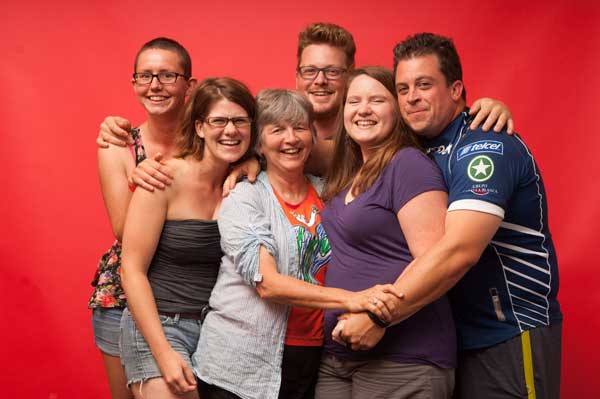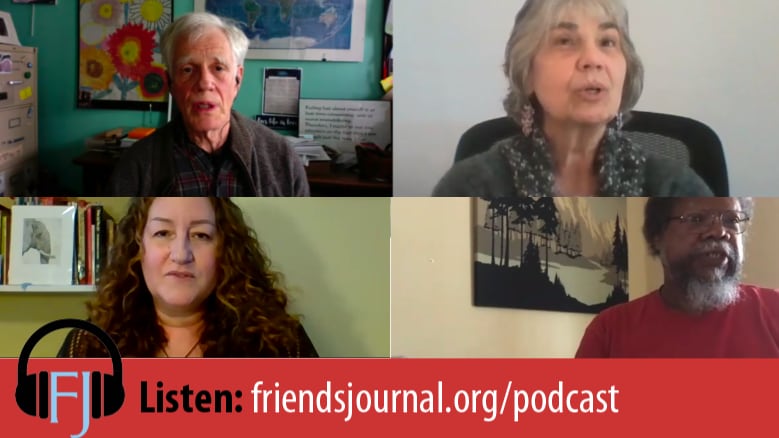Susan Corson-Finnerty is away, which gives me the welcome task of preparing this column.
For us at Friends Journal, November is traditionally the time to look back at the summer’s Friends General Conference Gathering. The first article, "Courageously Faithful—Bringing Peace to War" by Alaine D. Duncan (p. 6), is the text of an awe-inspiring presentation at the opening session, retracing her path into her healing work with soldiers who have returned from Iraq. We feel privileged to offer it here to those who missed it then—or who want to refresh their memories.
Then, in "Holy Yielding: A Lesson from the Gathering" by Murray Richmond (p. 11), we duck behind the scenes to experience the growth and affirmation of the author as he prepared for and led a weeklong workshop. A photo display follows and brings the Gathering coverage to a conclusion.
Next, in "A Model for Growth and Rejuvenation of Monthly Meetings" by Larry Van Meter (p. 14), we move to the outdoor world, and there we look at an organizational model that could hold promise for reviving our meetings—always a concern for Friends. Readers who knew David S. Richie of Friends workcamps and who are not familiar with the work of his son, David A. Richie, will especially value this article.
Then, in "Don’t Talk about It" by Harrison Roper (p. 16), we look north, to just below the Canadian border, to see what the Underground Railroad meant there—"on the ground."
Next, we turn south in "Espere Su Luz" by A. Laurel Green (p. 18), to glimpse the nuts and bolts of hooking up to the electric grid in Mexico.
The final feature, "My Journey among Friends" by Kevin-Douglas Olive (p. 20), gives us the chance to walk with a young person encountering Quakerism and growing as his meeting grew with him.
There are the usual departments, of course—but this time we include a Special Books Section, including a Book Review Essay by David Morse (p. 36) on the humanitarian crisis in Darfur.
One subject that we might have covered but couldn’t, because it wasn’t taped, was a plenary speech at the Gathering by James Lawson, a Methodist minister, activist, theologian, and colleague of Martin Luther King Jr. in the Civil Rights Movement. Surprisingly, Lawson was appearing for the first time before a large Quaker audience. He chose to address the future, without notes. He spoke of the U.S. presidential election, and he cautioned us that no matter what the outcome is, we are not relieved of the need to be vigilant—to take action, and to hold the government accountable. Mass protests, as in the past; e-mails and the Internet—these will not be enough. He said we will need a commitment of the heart. As an example of what he meant, he told the story of a Hindu father who approached Gandhi in despair over the loss of his son to a Muslim mob. After listening intently, Gandhi told him his consolation lay in finding a Muslim orphan boy, one like his son, and raising him with love—but as a Muslim. This is the needed spirit, and James Lawson said he believed Friends should be in the leadership in the coming struggle.
I found this a remarkable challenge for Friends to receive from the outside.
I wonder: Is it one we are prepared to accept?



